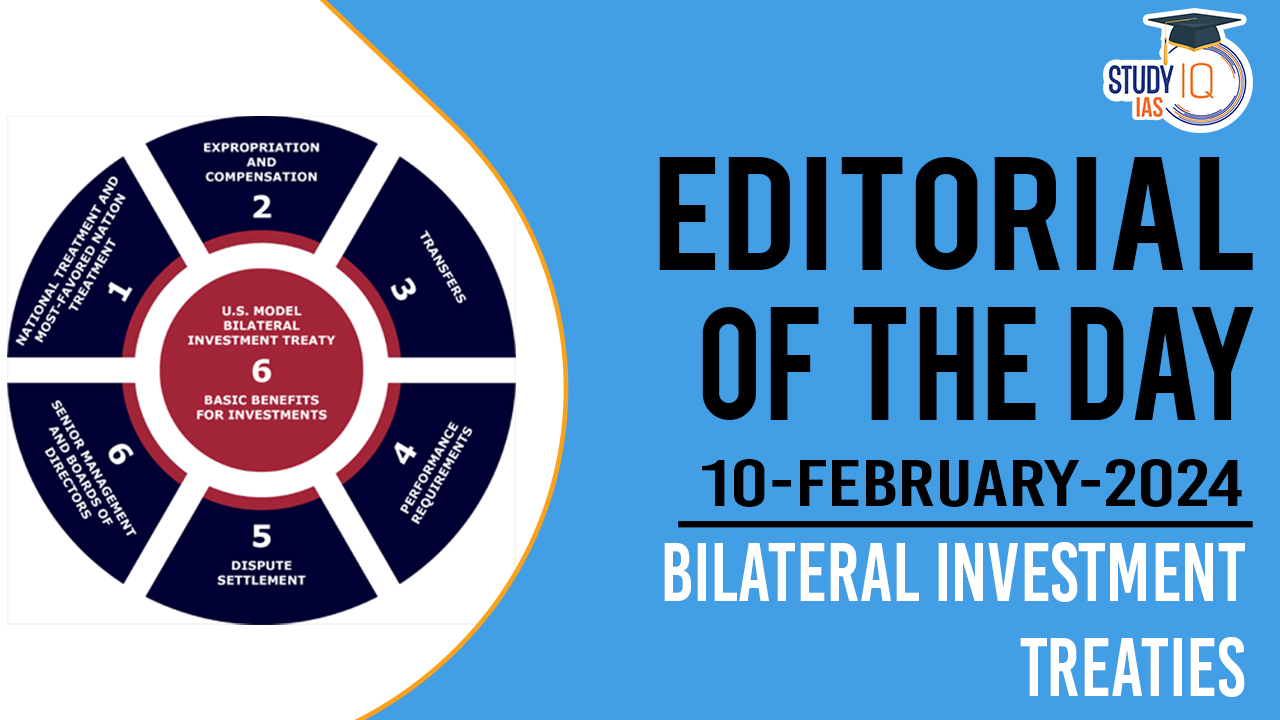Context: Finance Minister Nirmala Sitharaman announced plans to negotiate Bilateral Investment Treaties with trade partners to attract more foreign direct investment.
Bilateral Investment Treaties: An Overview
- Definition: BITs are international agreements between two countries to promote and protect mutual investments.
- India’s BIT History: Initiated in the mid-1990s to attract foreign investments with treaty-based protections.
- First BIT: India’s first BIT was signed with the UK in 1994.
India’s BIT Challenges and Reforms:
- Adverse Legal Outcomes: Faced with costly legal disputes, including a significant case against Cairn Energy.
- 2016 BIT Model: Introduced as a response to financial burdens from legal claims, the model was viewed as protectionist.
- Criticism: The 2016 model lacked key international law principles and mandated exhausting local legal remedies before arbitration.
- Termination and Renegotiation: India terminated 68 out of 74 BITs with the intent to renegotiate under the new model.
Impact on Foreign Direct Investment (FDI):
- FDI Decline: Notable decrease in FDI equity inflows recorded in April-September 2023.
- Negotiation Difficulties: India has struggled to renegotiate BITs under the stringent 2016 model, affecting FDI.
Steps Towards Progressive BITs:
- FTA Negotiations: India is negotiating an FTA with the UK, potentially omitting the requirement to exhaust local remedies.
- Parliamentary Recommendations: In 2021, suggestions were made for timely dispute settlements and building local arbitration expertise.
- Ease of Enforcement: India’s low ranking in contract enforcement highlights the need for BIT regime improvements.
We’re now on WhatsApp. Click to Join
Future Outlook:
- $5-Trillion Economy Goal: Progressive BITs are crucial for achieving India’s economic ambitions.
- Government Approach: Current efforts show a positive trend, but a tailored strategy is necessary for sustainable cross-border growth.
- Recommendations Implementation: Critical for improving India’s investment climate and ensuring robust trade and investment stability.


 Indus Water Treaty 1960 Suspended by Ind...
Indus Water Treaty 1960 Suspended by Ind...
 5 Years of SVAMITVA Scheme and Its Benef...
5 Years of SVAMITVA Scheme and Its Benef...
 Places in News for UPSC 2025 for Prelims...
Places in News for UPSC 2025 for Prelims...





















